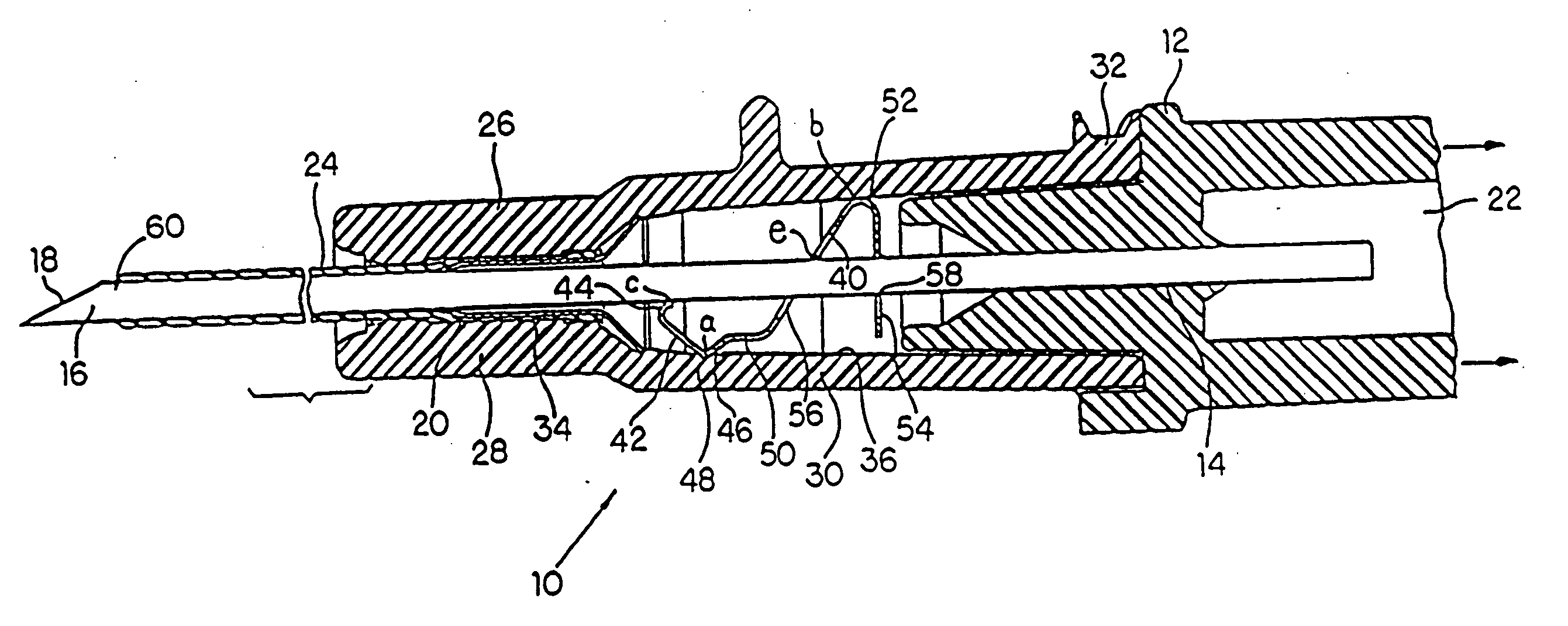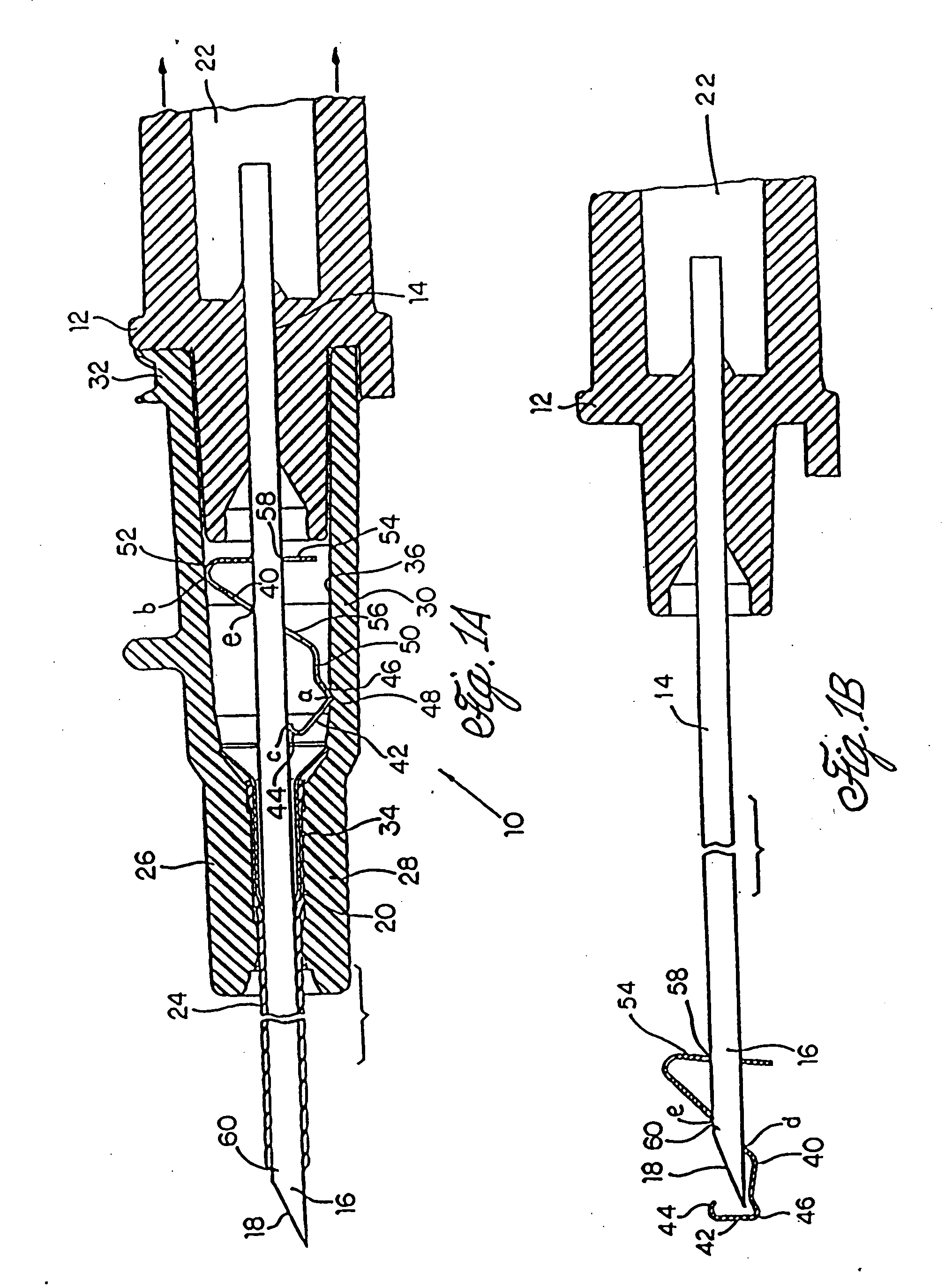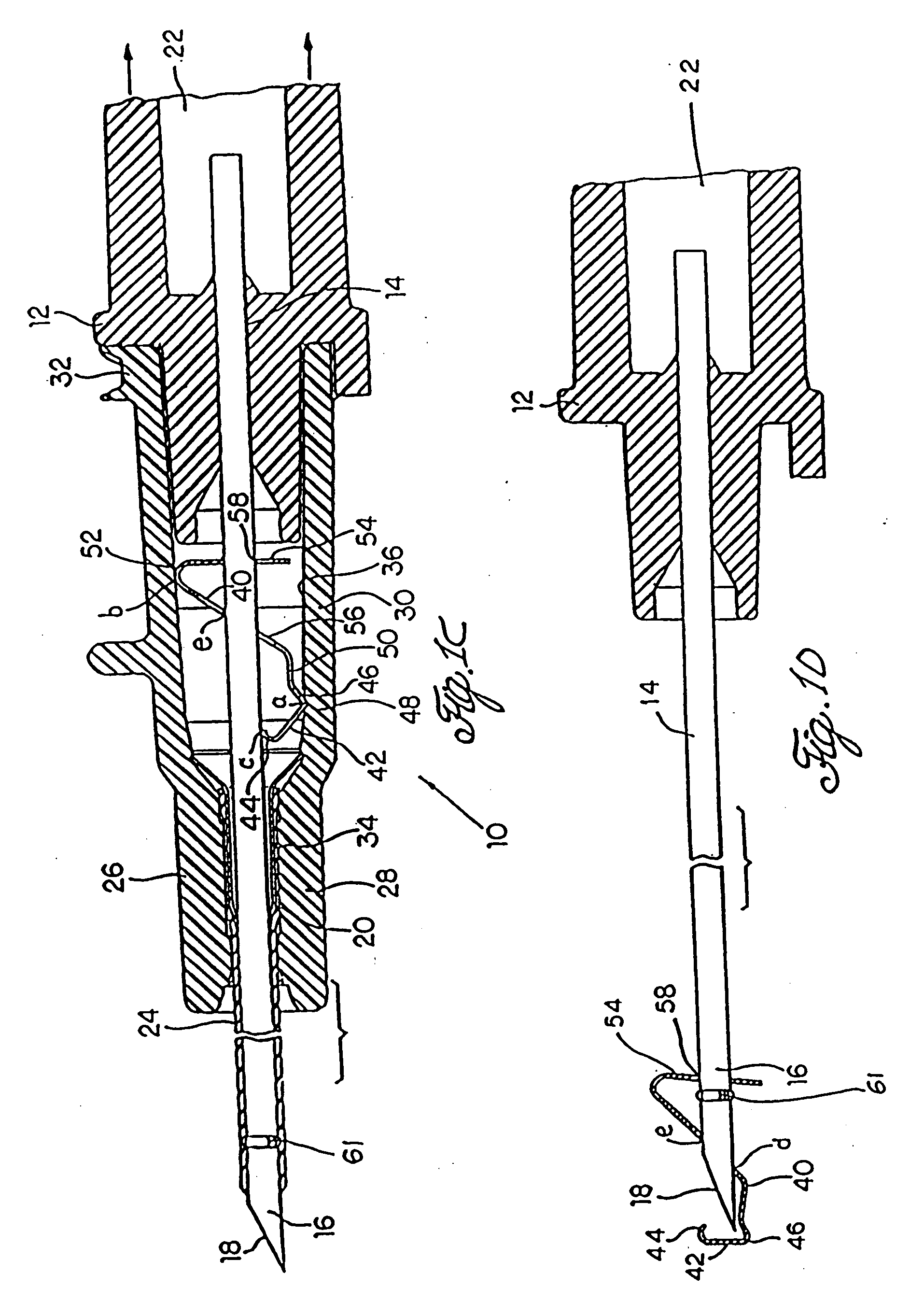Spring clip safety IV catheter
a safety iv catheter and spring clip technology, applied in the field of safety iv catheters, can solve the problems of limited usefulness and full acceptance of the patient, the force required to engage the needle slot within the guard flange is relatively large, and the health care worker is vulnerable to the transmission of various dangerous blood-borne pathogens
- Summary
- Abstract
- Description
- Claims
- Application Information
AI Technical Summary
Benefits of technology
Problems solved by technology
Method used
Image
Examples
Embodiment Construction
[0046] The safety IV catheter of the invention, generally designated 10 in the embodiment illustrated in FIGS. 1A and 1B, includes a needle hub 12 that includes an axial opening 14 which securely receives the proximal end of a needle 16 having a sharpened tip 18. The needle hub 12, as is conventional, is hollow and includes a flash chamber 22. As is also conventional, the needle 16 is received within a hollow tubular catheter 24, the proximal end of which is concentrically affixed within the distal end of a catheter hub 26 having a distal section 28 and a contiguous, larger diameter proximal section 30.
[0047] The catheter hub 26 terminates at its proximal end in a Luer fitting 32 adapted to receive a tubing set which, in a known manner, administers intravenous fluid into the patient. The catheter 24 is secured within an axial passageway 34 in the distal hub section 28 by means of a sleeve 20 received within the passageway 34, which engages the proximal end of the catheter. Passagew...
PUM
 Login to View More
Login to View More Abstract
Description
Claims
Application Information
 Login to View More
Login to View More - R&D
- Intellectual Property
- Life Sciences
- Materials
- Tech Scout
- Unparalleled Data Quality
- Higher Quality Content
- 60% Fewer Hallucinations
Browse by: Latest US Patents, China's latest patents, Technical Efficacy Thesaurus, Application Domain, Technology Topic, Popular Technical Reports.
© 2025 PatSnap. All rights reserved.Legal|Privacy policy|Modern Slavery Act Transparency Statement|Sitemap|About US| Contact US: help@patsnap.com



